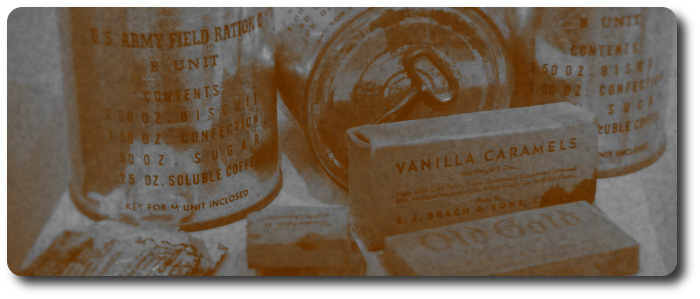Getting Ready for Camp (US Army, 1917)
Topic: Drill and Training

Getting Ready for Camp (US Army, 1917)
Home-Reading Course for Citizen Soldiers (Lesson No. 4, of 30)
Spokane Daily Chronicle, Spokane, Washington, 30 August 1917
Your real training for duties as a soldier will begin after you and your comrades are assembled at the training camps. However, there are a few simple things you can do during the next few weeks which will be of decided value in getting you started along the right lines.
The simplest thing, and perhaps the most useful of all, is to begin at once to practice correct habits of standing and walking. For a soldier must always be strongly marked by his snap, his precision, and his vigor. He can not have these unless he carries himself like a soldier.
The Bearing of a Soldier
Few people without military training have a correct idea of what is meant by the position and the bearing of a soldier. They are apt to imagine that it means a strut or an extremely strained attitude. Or, more frequently, they think that the term can properly be applied to any erect position.
It will be well for you to memorize paragraph 51 of the infantry drill regulations, which gives the complete and accurate description of the position of the soldier. This paragraph is slightly paraphrased and simplified in the description following: Keep in mind that there are ten elements which must be properly adjusted to each other, and check yourself up to see that each one of them is properly placed.
1. Heels—on the same line, and as near each other as possible; most men should be able to stand with heels touching each other.
2. Feet—turned out equally and forming an angle of about 45 degrees.
3. Knees—straight without stiffness.
4. Hips—level and drawn back slightly; body erect and resting equally on hips.
5. Chest—lifted and arched.
6. Shoulders—square and falling equally.
7. Arms—hanging naturally.
8. Hands—hanging naturally, thumb along the seam of the trousers.
9. Head—erect and squarely to the front; chin drawn in so that axis of head and neck is vertical (that means a straight line drawn through the centre of head and neck should be vertical), eyes straight to the front.
10. Entire body—weight of body resting equally upon the heels and balls of the feet.
Note especially that you are not required to stand in a strained attitude. You are to be alert but not tense.
One of the best things you can do today is to spend 15 minutes practicing this position, getting it right. Keep this up every day until you report at camp.
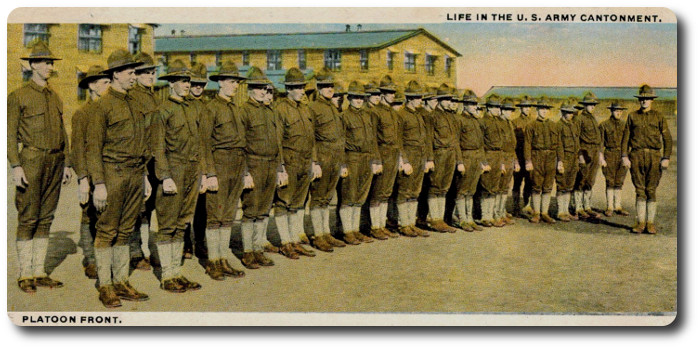
Making Yourself "Fit"
If you can devote part of your time between now and the opening of camp to physical exercise you are fortunate and should by all means take advantage of every opportunity. Climbing, jumping, gymnastic exercises, all kinds of competitive games, swimming, rowing, boxing, wrestling and running are all recommended as excellent methods of developing the skill, strength, endurance, grace, courage and self-reliance that every soldier needs.
There are some simple rules of eating and living which all of us should follow regularly. They will be especially helpful to you if you put them into practice in preparing for camp life.
Perhaps the most important of these rules is to use no alcohol of any kind.
If you have been in the habit of smoking immoderately, cut down; get your wind, your nerves and your digestion into the best possible condition.
Eat and drink moderately. Chew your food well. It is advisable, however, to drink a great deal of cool (not cold) water between meals. Don't eat between meals.
Keep away from soda fountains and soft drink stands. Learn to enjoy simple, nourishing food.
Accustom yourself to regular hours for sleeping eating and the morning functions.

You will find nothing required of you in the army that is beyond the powers of the every-day American. You will see clearly ahead of you, after you have read this course, the path which you are to follow. Look forward with confidence. Enter the service with firm determination of doing your best at all times, of playing square with your superiors, your associates, and yourself, and of taking care always of your assigned duties whatever may happen.
You will find that everyone else will treat you with courtesy and fairness—for that is the inflexible rule of the army. Out of that rule grows the comradeship and the attractiveness, even in the face of all dangers and hardships, that are characteristic of American army life.

Posted by regimentalrogue
at 12:01 AM EST

 His Excellency the Commander in Chief has been pleased to direct that Captain Hanson's Company, No. 1, of the 1st (Prince of Wales Regiment) of Volunteer Rifles, be removed from the list of Volunteer Militia. The officers and men of this Company having been guilty of a gross act of insubordination, in refusing to obey the orders of the Officer Commanding the Regiment, when directed to equalize the Battalion for inspection by the Inspecting Field Officer, on the 13th December last. An act by which that Company, not only compromised the character of the Regiment to which it belonged, but also that of the Force generally.
His Excellency the Commander in Chief has been pleased to direct that Captain Hanson's Company, No. 1, of the 1st (Prince of Wales Regiment) of Volunteer Rifles, be removed from the list of Volunteer Militia. The officers and men of this Company having been guilty of a gross act of insubordination, in refusing to obey the orders of the Officer Commanding the Regiment, when directed to equalize the Battalion for inspection by the Inspecting Field Officer, on the 13th December last. An act by which that Company, not only compromised the character of the Regiment to which it belonged, but also that of the Force generally.


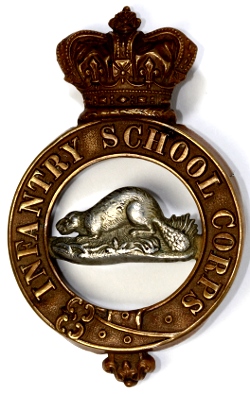 Militia General Orders
Militia General Orders

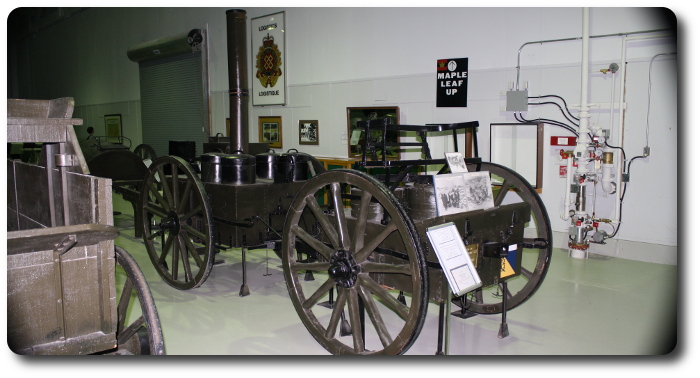
 Frozen meat at present constitutes 60 per cent of the total meat issued to the British army. The remainder is made up of preserved meat of several varieties. The most familiar form is the well-known "bully beef," which is corned beef packed in small oblong tins, each containing 12 ounces. Some units cook their bully beef, other prefer it just as it comes from the tin. In comprised the principal article of diet for the army at Gallipoli.
Frozen meat at present constitutes 60 per cent of the total meat issued to the British army. The remainder is made up of preserved meat of several varieties. The most familiar form is the well-known "bully beef," which is corned beef packed in small oblong tins, each containing 12 ounces. Some units cook their bully beef, other prefer it just as it comes from the tin. In comprised the principal article of diet for the army at Gallipoli.

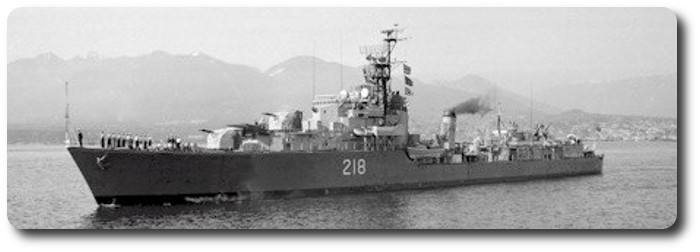

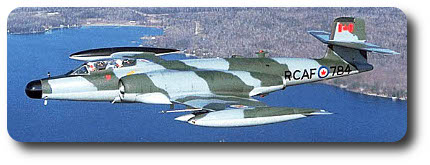 The entire Canadian air defence potential, excluding only a division of jet interceptors stations in Europe, is in process of being put under the operational control of the North American Air Defence Command at Colorado Springs, along with USAF jets.
The entire Canadian air defence potential, excluding only a division of jet interceptors stations in Europe, is in process of being put under the operational control of the North American Air Defence Command at Colorado Springs, along with USAF jets.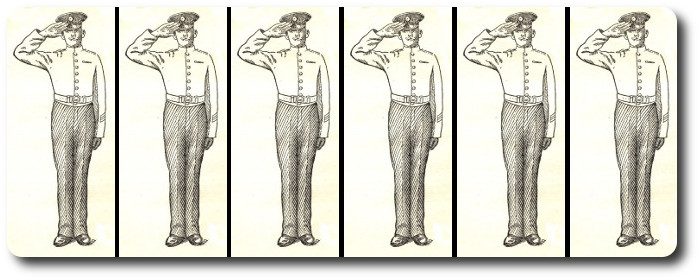


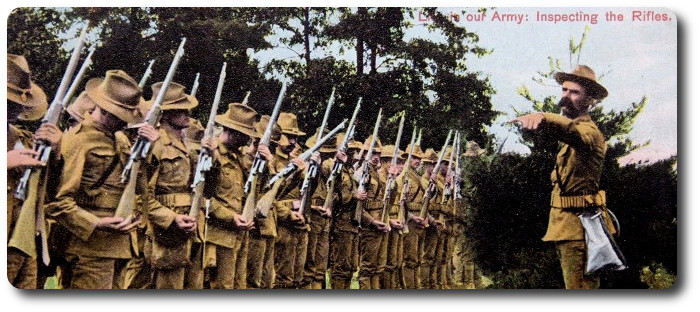
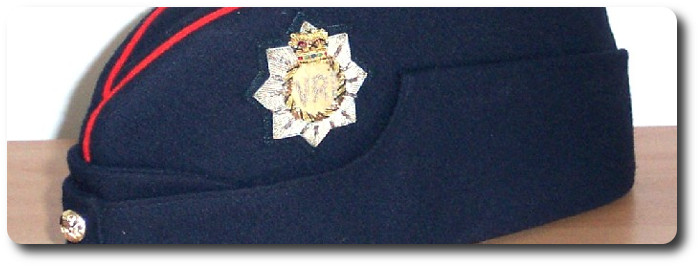


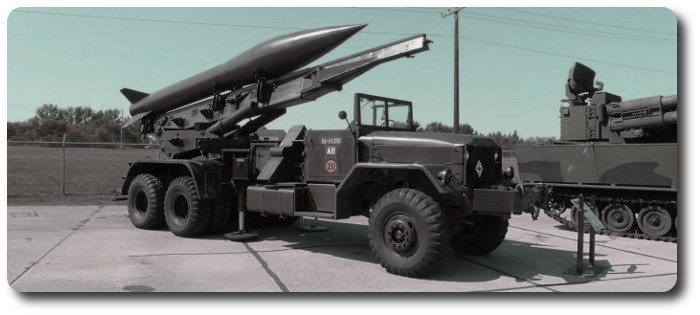
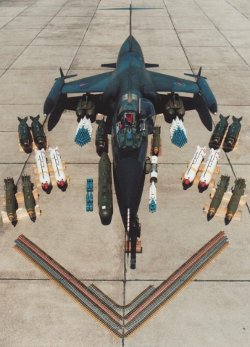 Mr. Harkness then referred to the three weapons systems coming into service with the armed forces as all having a nuclear capability. These were the Honest John rocket launcher for the army, the Bomarc anti-aircraft weapon for the RCAF at home, and the CF-104 jet strike-attack plane for the air force in Europe.
Mr. Harkness then referred to the three weapons systems coming into service with the armed forces as all having a nuclear capability. These were the Honest John rocket launcher for the army, the Bomarc anti-aircraft weapon for the RCAF at home, and the CF-104 jet strike-attack plane for the air force in Europe.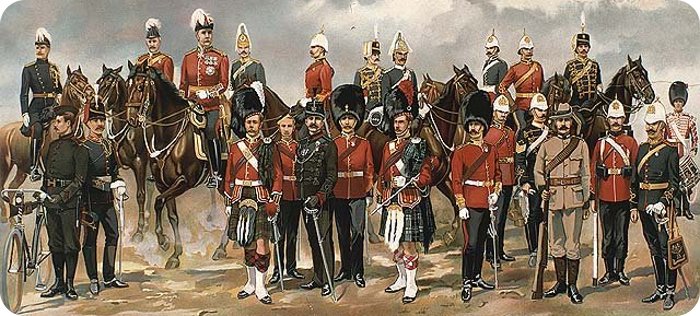



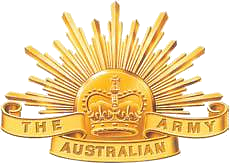 The Age, Melbourne, Australia, 17 June 1960
The Age, Melbourne, Australia, 17 June 1960

